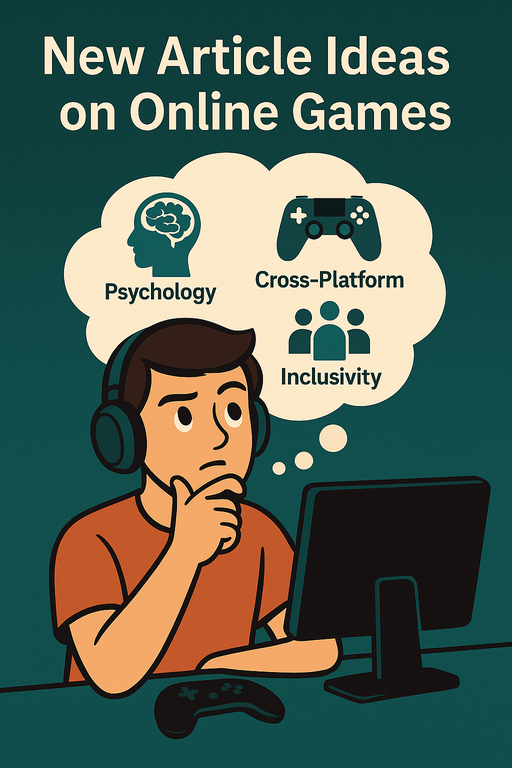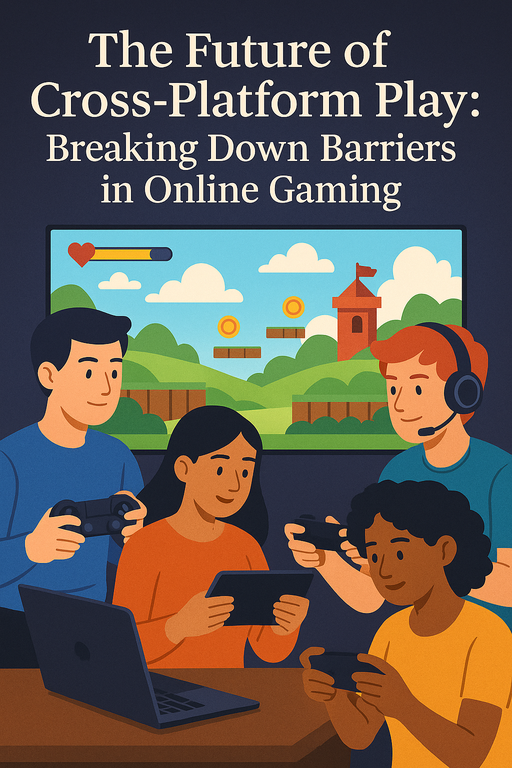Online gaming continues to be one of the fastest-evolving industries in the world. What started with simple multiplayer shooters and fantasy RPGs has now expanded into massive digital ecosystems, social hubs, and even competitive sports. With millions of players logging in daily across all ages and cultures, there is always something new to explore — and something new to write about. For content creators, bloggers, journalists, or gaming site editors, staying ahead means constantly finding fresh perspectives.
Here are some original and engaging directions for articles about online games that go beyond patch notes and reviews, tapping into the real-world impact and future potential of this digital universe.
The Psychology of Online Gaming
Why do we play? What makes certain games addictive while others lose players quickly? Articles exploring the mental and emotional pull of online games — from the thrill of victory to the sense of community — provide deeper insight into player behavior. You could explore how reward systems, social status, and narrative immersion keep gamers hooked and how developers use psychology to build loyal audiences.
Gaming as a Social Connector
More than just a pastime, online gaming has become a major platform for social connection. During global lockdowns, it became a lifeline for people of all ages to stay in touch. Writing about how friendships, even relationships, are formed and maintained through games can resonate with a wide audience. Interviews with real players about their long-distance friendships or virtual weddings inside games like Final Fantasy XIV can add a human angle.
The Rise of Indie Multiplayer Games
While major titles from big studios dominate headlines, many indie developers are crafting innovative multiplayer experiences that deserve attention. Articles that spotlight lesser-known games — especially those made by small teams — can help readers discover hidden gems and support creative development in the gaming world.
Inclusivity and Representation in Gaming
Online games are played by people of all backgrounds, yet representation in avatars, characters, and stories still has room to grow. An article could explore how the industry is evolving to be more inclusive, what it’s getting right, and where it still needs to improve. Interviews with developers or players from underrepresented groups can make these stories more powerful and personal.
The Economics of In-Game Purchases
Love them or hate them, microtransactions and battle passes are here to stay. Articles breaking down how these systems work, how much players really spend, and whether it’s fair could be both informative and controversial. A deep dive into “pay-to-win” mechanics versus cosmetic-only purchases might draw strong opinions and open up discussion.
Cross-Platform Gaming: What’s Next?
As we explored in another article, cross-platform gaming is changing how people connect. But there’s still so much to talk about: the technical hurdles, the business deals behind the scenes, and how players adapt to new matchmaking realities. Looking into upcoming titles planning full cross-platform support could give readers something to look forward to.
Online Gaming and Mental Health
This is a rising topic in both gaming and health journalism. Articles could address how online gaming can both help and hurt mental well-being. You might focus on games designed to reduce stress, support mindfulness, or encourage teamwork — or alternatively, discuss burnout, toxic behavior, and the need for balance.
Virtual Economies and Digital Ownership
In-game economies are no longer fantasy — they can have real-world value. From skins and NFTs to user-generated content and player-to-player trading, articles can explore the blurred line between play and profit. What does ownership look like in a digital space, and how is this shaping the future of gaming?
Final Thoughts
Online games are more than entertainment — they are shaping how we live, communicate, and experience stories. Writers who can see beyond the screen have endless opportunities to inform, entertain, and inspire. Whether your audience is made of casual players or hardcore fans, fresh, thoughtful content will always stand out. The digital playground is only getting bigger, and the stories worth telling are just getting started.






Leave a Reply